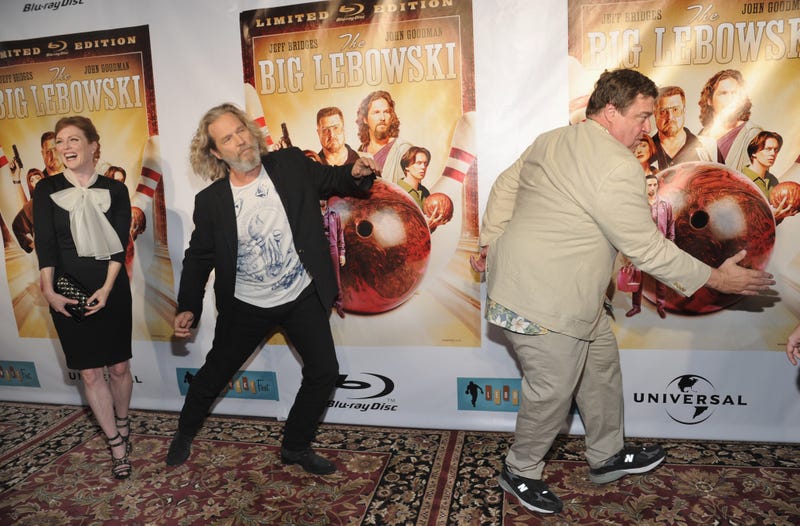Originally posted, Randall Colburn 3/09/18 11:56am
https://www.avclub.com/heres-why-critics-got-the-big-lebowski-so-wrong-1823646693

If some eager, film-loving acquaintance giddily sought to show you The Big Lebowski, and you glazed over afterwards, confused as to why everyone told you it’s “the funniest movie ever made,” you’re not alone. Critics, primed for more of Joel and Ethan Coen’s vision after the success of 1996’s Fargo, more or less thrashed the film upon its release, disappointed by its meandering plot and absurdist diversions. Many have come around on it in recent years, while others haven’t. As Jeet Heer points out in a 20th anniversary piece on the film in The New Republic, New Yorker critic Daphne Merkins stands by the ambivalence of her initial review, calling it “a quintessential insider movie, one that plays in this shrewd way to groupthink. You’re either in on it, or you’re not in on it.”
What Heer gets at in his piece is that The Big Lebowski is perhaps not quite meant for one-and-done viewing or immediate critical analysis. He shares a Twitter exchange with The Last Jedi director Rian Johnson, who calls the film a “grower,” while admitting that he “totally didn’t get it” when he saw it in the theater but that he “kept rewatching.”
While it’s lame to accuse someone of “not getting” a piece of entertainment, there is an argument to be made that it’s tough to like a movie when you’re struggling (or unwilling) to meet the filmmakers on their level. That’s easier when watching an artist like David Lynch, whose style is fairly consistent throughout his oeuvre, but the Coens are peripatetic, regularly mish-mashing genres and styles in ways that can put off fans of their more straightforward works, like Fargo or No Country For Old Men. Try showing a Coen newbie Burn After Reading after Fargo and you’ll very likely witness frustration. One does not prepare for the other.
To really enjoy The Big Lebowski is to slip into the rhythms of Jeff Bridges’ The Dude. The story’s evolution, pacing, and general tone are all filtered through his lazy, weed-clouded gaze, and, as such, it becomes an exercise in character, which isn’t fully apparent in a movie that crams in so much plot.
Heer puts it this way:
The Big Lebowski is a grower because the plot is less important than the characters. At the heart of the movie is the improbable friendship of the near-pacifist Dude and the violence-prone Walter. The zinging banter between the two characters is really a battle of philosophies. The Dude (one of the authors of the original Port Huron Statement, “not the compromised second draft”) embodies the spirit of the 1960s counterculture, weatherworn by the 1990s but still wily and subversive; Walter is a knee-jerk hawk, always escalating conflict, often with disastrous results. But to enjoy the movie you have to get to know the two characters and appreciate the nuances of their friendship, which is easier after multiple viewings. The dialogue also becomes richer, as you notice how the characters have distinctive lingos which the Dude, with his sponge mind, absorbs and echoes.
You can read the whole article here. And if you remain mystified by the entire phenomenon, as we noted earlier this week, now’s as good a time as any to get caught up.